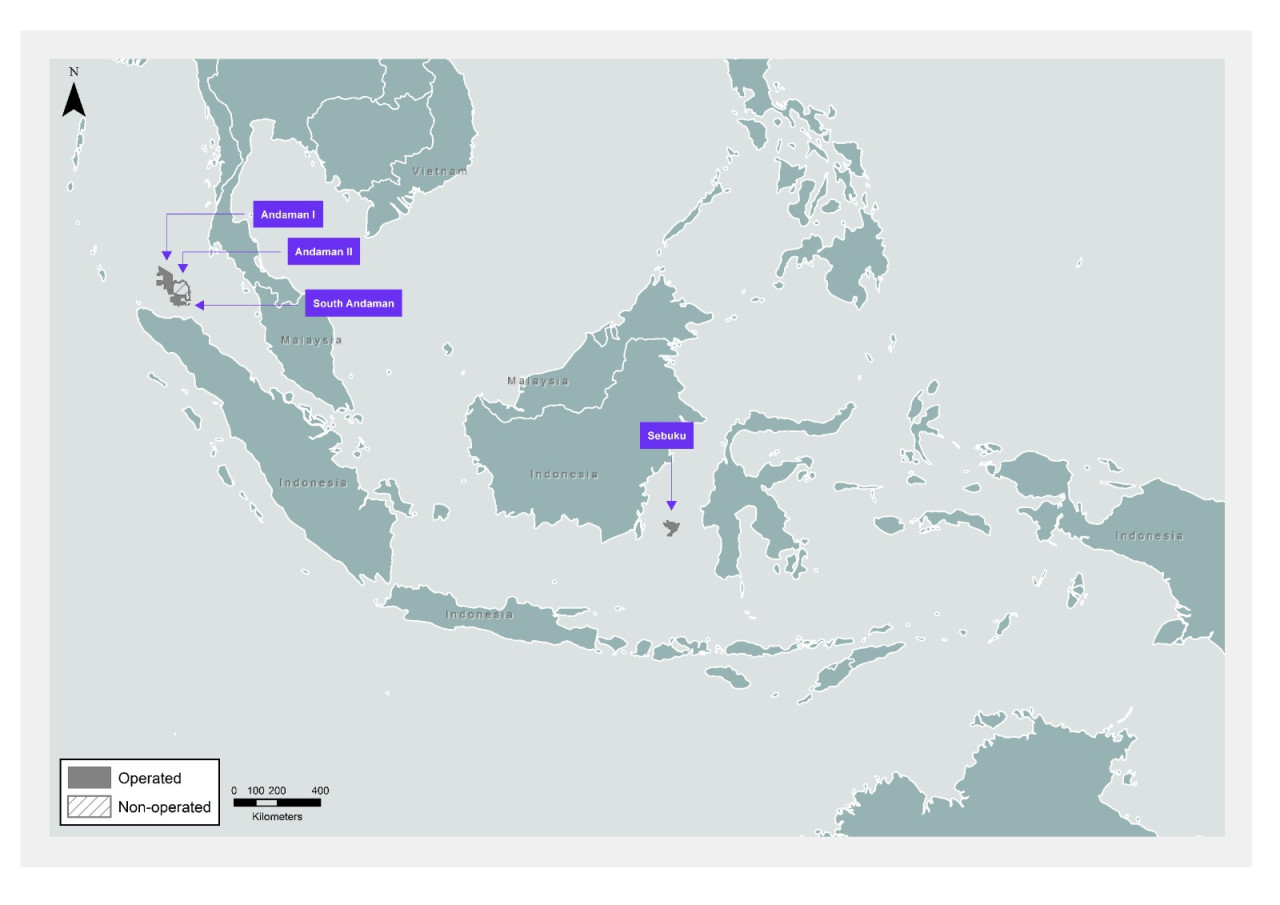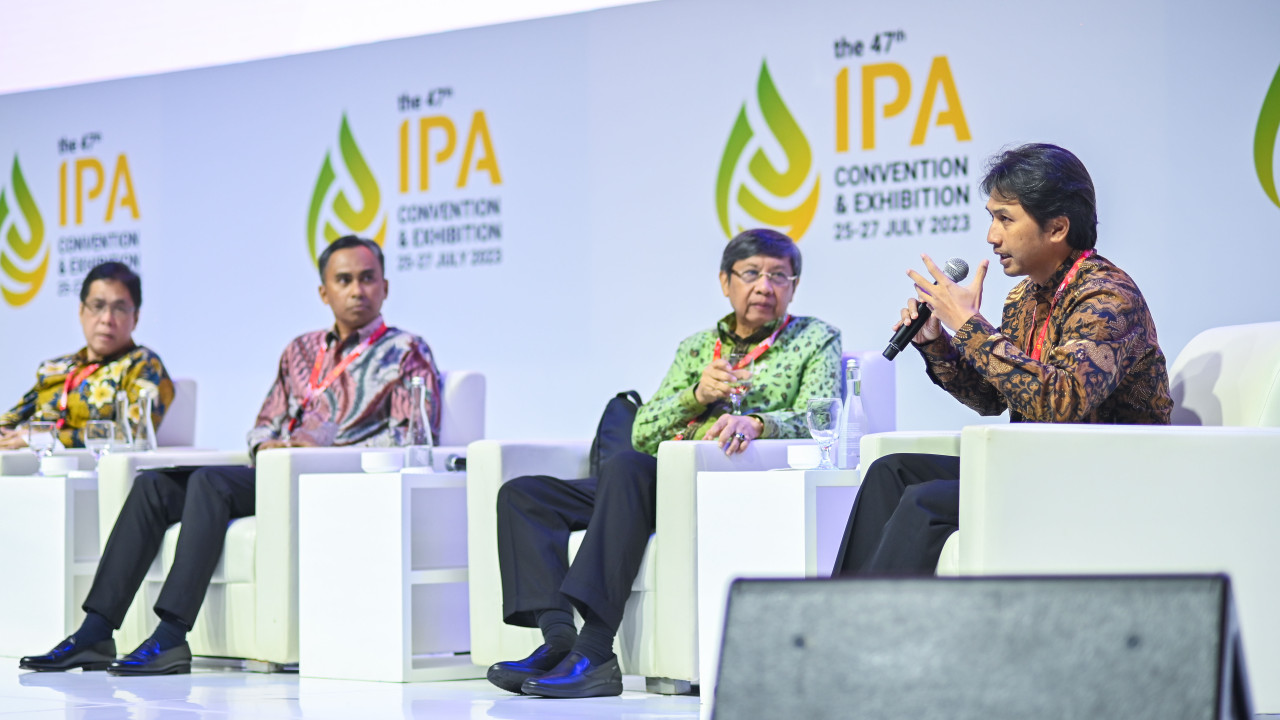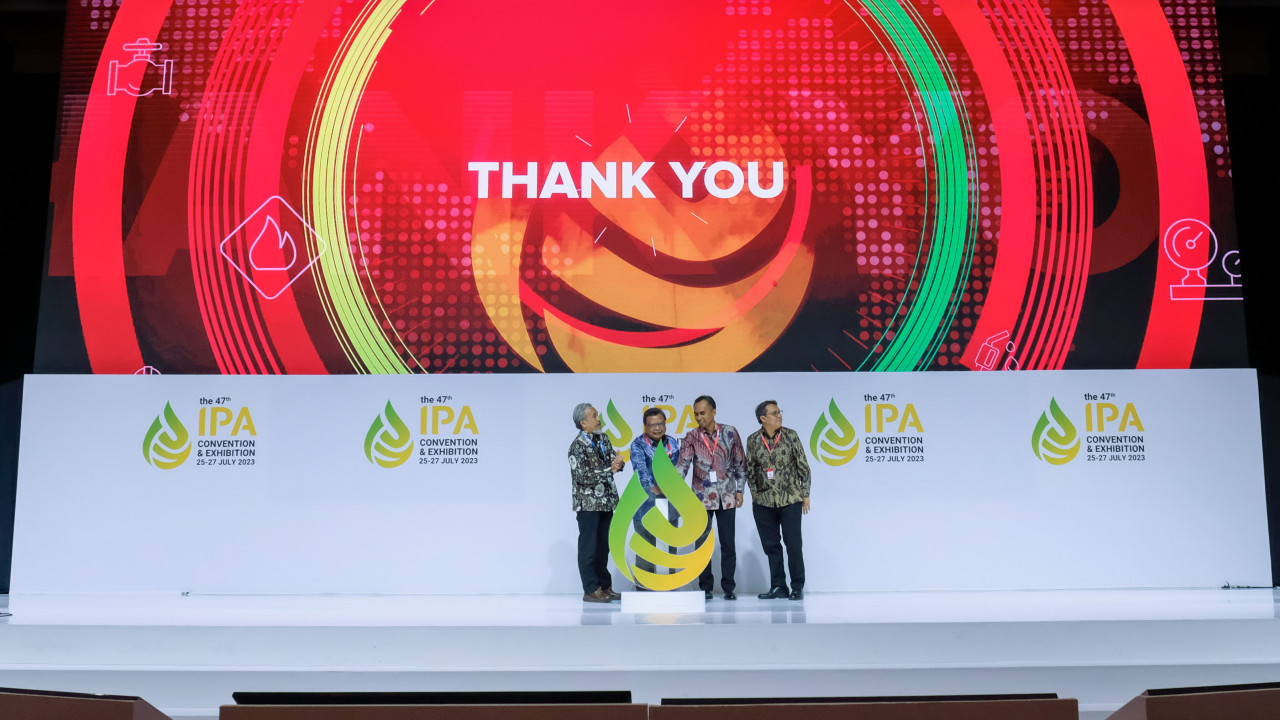Balancing Indonesia’s Oil and Gas Production Target and Reducing Carbon Emission
Wednesday, 1st September 2021 | 10:30-12:00
“The New Landscape of Oil and Gas Investment in Indonesia”
Energy sustainability is essential in supporting a developing nation. Therefore, it is important to ensure that the energy supply is able to meet the increasing national energy demand. The 2017 National Energy General Plan (RUEN) projected the 2030 energy mix comprising oil (23%), natural gas (21.8%), coal (29.6%), and renewable energy (25%).
Given oil and gas perpetual role in the energy mix, the government rolled out an initiative to increase the production to be able to meet the national energy demand. The target is to increase production to 1 million barrels per day (MMBOPD) for oil and 12 billion standard cubic feet per day (BSCFD) for gas in 2030.
Minister of Energy and Mineral Resources Arifin Tasrif mentioned that as a part of the effort to reach production target, a two-dimensional seismic survey was carried out as a part of Firm Work Commitment for the Jambi Merang working area. The survey was the largest 2D seismic survey in the last decade in Southeast Asia.
"This is an effort show that Indonesia still has resources potential," he said.
On the other hand, the government is trying to provide incentives for existing oil and gas blocks. The Mahakam block, managed by Pertamina Hulu Mahakam, for example, received a first tranche petroleum (FTP) adjustment. Incentives were also given for the development of a large-scale petrochemical complex with gas supply from the Kasuri Block operated by Genting Oil.
Arifin said it was very important to realize the oil and gas production target by 2030, since the oil and gas industry is a locomotive for the economy that can bring in revenue for the country. However, the energy sector must also pay attention to the carbon emissions target.
“The global energy sector is already referring to the energy transition, comparing or balancing energy and carbon capture development,” he said.
In an effort to encourage the provision of alternative energy, Arifin added, Indonesia is trying to increase the use of gas as a new energy of the future along with other new renewable energy (NRE). One of the efforts to support this is through the conversion program of diesel power plants to natural gas.
This effort is also balanced with the provision of supplies. One of the deep-sea gas projects or the Indonesia Deepwater Development (IDD) was identified as a National Strategic Project as an effort to maintain gas production in Indonesia.
In addition, to minimize carbon emissions in production activities, the government is encouraging the implementation of Carbon Capture and Storage (CCS) as well as Carbon Capture, Utilization, and Storage (CCUS) technologies.
Deputy Minister of The Environment and Forestry Alue Dohong said that increasing oil and gas production will affect the increase in greenhouse gas (GHG) emissions. However, a number of efforts have been made to maintain balance. One of them is by designing natural gas production with zero flaring technology.
He added that carbon capture technologies, namely CCS and CCUS, will also encourage oil and gas production. “This is tied to carbon trading. Carbon emissions reduction can be used for emission reduction certification and can be marketed on the carbon market,” he said.
With oil and gas production targets and long-term energy policies, carbon pricing will play a strategic role. Moreover, Alue said that the Ministry of Environment and Forestry would encourage the oil and gas sector to implement green business in operational activities. The carbon pricing with respect to carbon price, the Ministry of the Environment and Forestry, the Ministry of Energy and Mineral Resources, IPA, and the industry will start discussing the potential carbon price," he said.
Deputy Minister of Finance Suahasil Nazara said oil and gas investment is very important for Indonesia in the current situation where the country's economy is experiencing contraction due to the Covid-19 pandemic. Furthermore, oil and gas investment is also important in efforts to secure national energy needs and reduce carbon emissions.
“Investment is very important and at the same time international commitment is also very important (The Paris Agreement). We must be able to find the right balance for all of this,” he said.
Therefore, the Ministry of Finance seeks to provide attractive fiscal facilities for investors. One of them is by lowering corporate income tax to 20 percent which is planned to be carried out in 2022. "The oil and gas will be included in the sectors that will benefit from the reduction of corporate income tax," said Suahasil.
Moreover, the government has also offered a choice of cost recovery and gross split profit-sharing schemes to investors. As for the carbon tax, Suahasil hopes that this will not only be seen as an increase in state revenue in the short term. According to him, the carbon tax represents a way of looking at the economy, the environment, and an option to improve people's welfare.
"I believe many sectors are trying to discuss the carbon tax, we also want to get input from them," he said.
To improve the investment climate so that Indonesia becomes an attractive destination for investors, Suahasil said, the oil and gas sector has a more specific treatment than other sectors. Therefore, the government will continue to look for the most appropriate format for a better oil and gas investment climate.
“The government is committed to continuing support for the oil and gas sector by using the various incentives provided. It's a fiscal role that I believe will be beneficial," he said.



